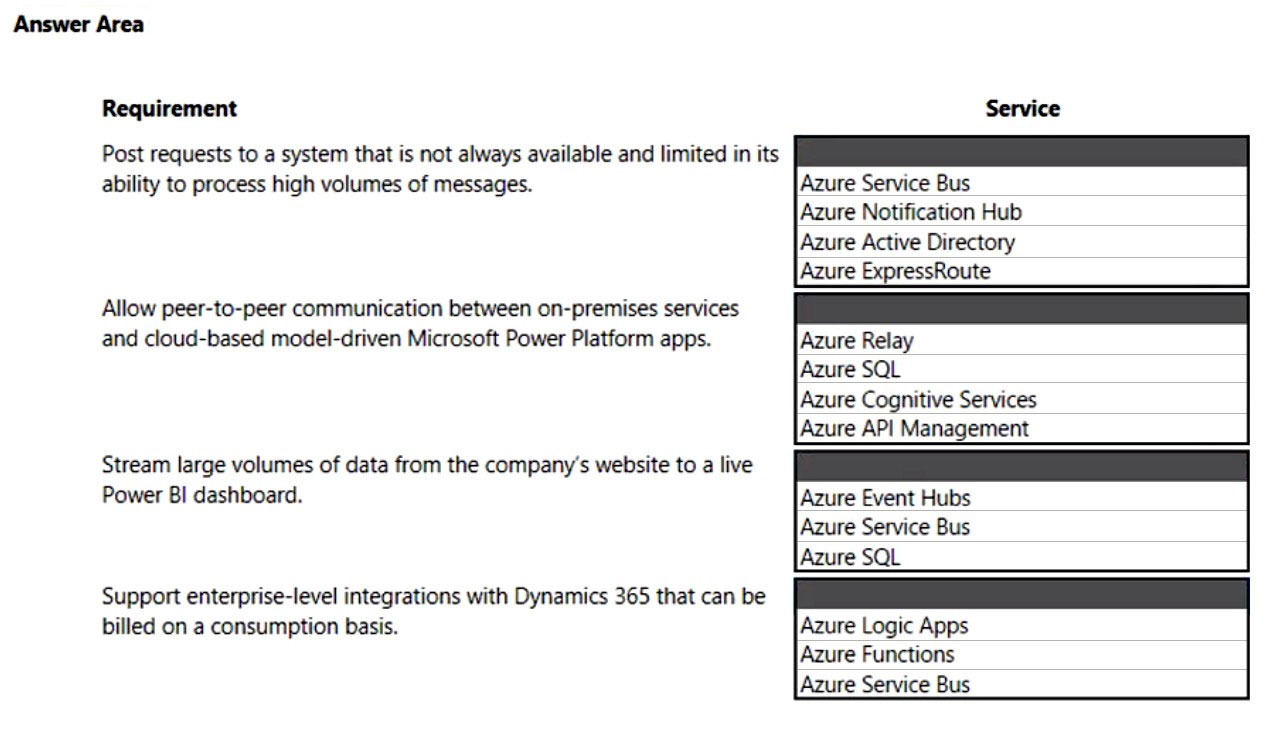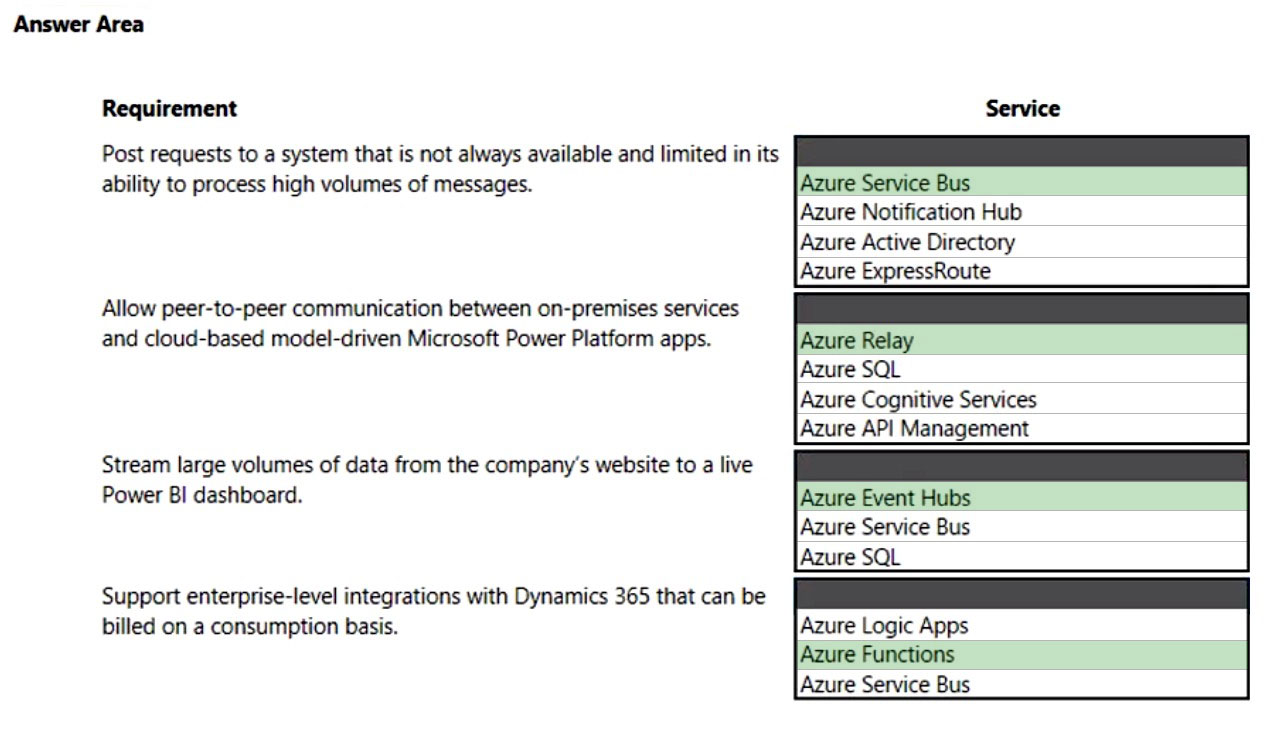

HOTSPOT -
You are a Microsoft Power Platform architect designing integrations for a project.
You have the following integration requirements:
Post requests to a system that is not always available and limited in its ability to process high volumes of messages.
✑ Allow peer-to-peer communication between on-premises services and cloud-based model-driven Microsoft Power Platform apps.
✑ Stream large volumes of data from the company's website to a live Power BI dashboard.
✑ Support enterprise-level integrations with Dynamics 365 that can be billed on a consumption basis.
You need to use an Azure service for the integration requirements.
Which Azure services should you use? To answer, select the appropriate options in the answer area.
NOTE: Each correct selection is worth one point.
Hot Area:

avow
Highly Voted 2 years, 7 months agoqub3
7 months, 3 weeks agoBrooklyn_Itself
2 years, 5 months agoandreas_87
2 years, 7 months agoSaschaB
2 years, 7 months agoFaresAyyad
Most Recent 3 months, 1 week agonqthien041292
9 months agoBrahderLau
2 years, 1 month agoRichXP
2 years, 2 months agoFlatternschuchtern
2 years, 2 months ago[Removed]
2 years, 5 months agopetertwilliams
2 years, 6 months ago